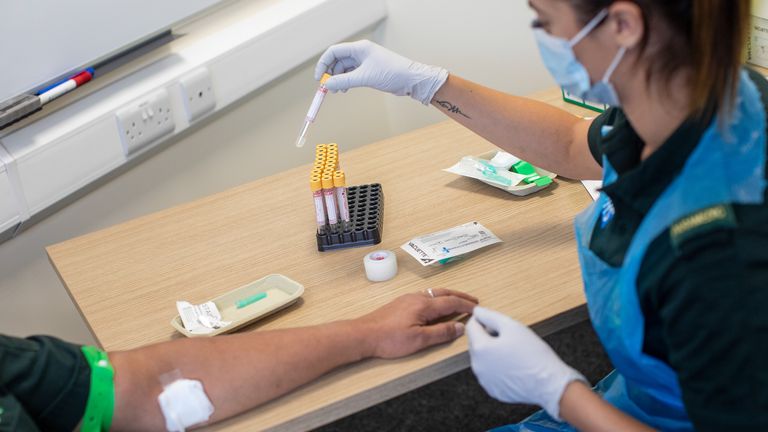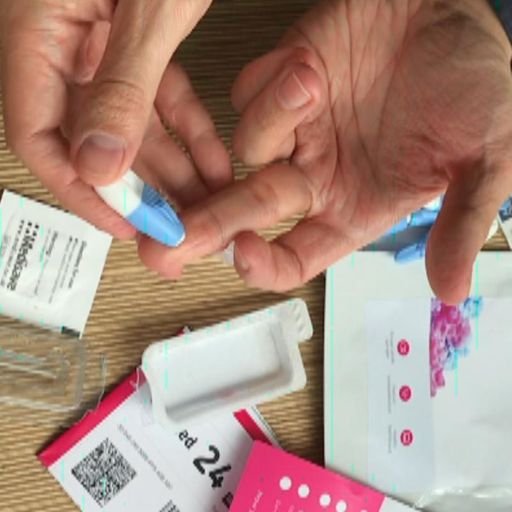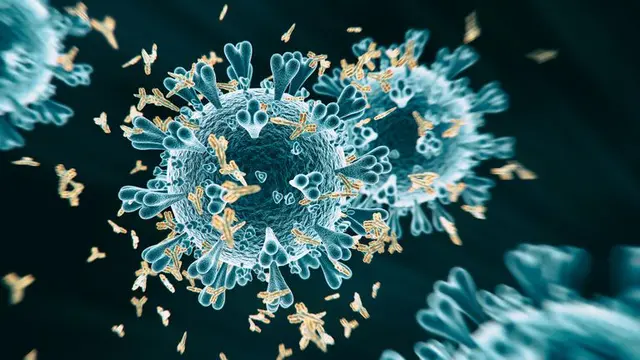COVID-19 antibodies have not been detected in up to 8.5% of patients diagnosed with the disease, a study has found.
However researchers say the antibodies remain stable in the blood of most infected people almost two months after they are diagnosed - and possibly longer.
It comes after the government announced last month the supply of 10 million
antibody tests
to show if someone has had **COVID-19
** and potentially developed immunity to the **virus
** .

Image:It is unclear how long any immunity provided by the antibodies could last
Antibodies are produced by the immune system when it is being attacked in order to destroy substances which carry disease.
Experts from St George's, University of London; St George's University Hospitals NHS Foundation Trust and the Liverpool School of Tropical Medicine analysed antibody test results from 177 people diagnosed with COVID-19.
The pre-print study, which has not been peer-reviewed, found that the levels of antibodies in patients which produced them remained stable for the duration of the study - almost two months.
But between 2% and 8.5% of patients did not develop COVID-19 antibodies at all, the researchers found.

Coronavirus immunity: How is it tested? Does immunity last forever?
The experts said this could be because the immune response in those patients could be through other mechanisms, such as different antigens.
The study also found that patients with the most severe infections were more likely to develop antibodies, suggesting a higher viral load could lead to greater stimulation of antibody development.
Being of non-white ethnicity was also associated with a higher antibody response, tying into the knowledge that patients from
BAME backgrounds
are more likely to develop severe disease, the researchers said.
Older patients or those who were overweight were also more likely to have an antibody response, they added.
**:: Listen to Sophy Ridge on Sunday on **
Apple podcasts
**, Google podcasts
, Spotify
, Spreaker
**
Professor Sanjeev Krishna, from St George's, University of London, said: "We need to understand how best to interpret the results from these tests to control the spread of the virus, as well as identifying those who may be immune to the disease."
Health Secretary Matt Hancock said last month that research had shown at least 5% of people in the UK have now developed COVID-19 antibodies - and at least 17% of Londoners have them.
But experts are still unsure what level of immunity recovering from the disease provides and how long it lasts.
 简体中文
简体中文










